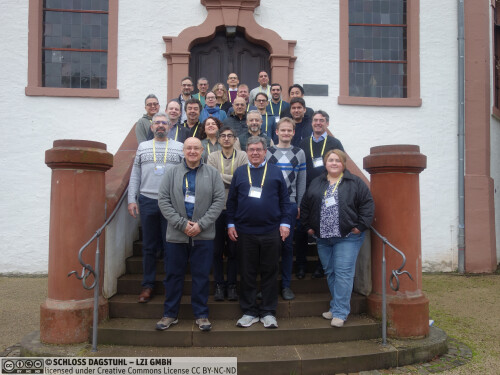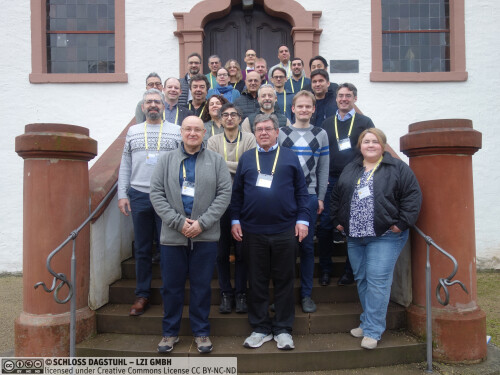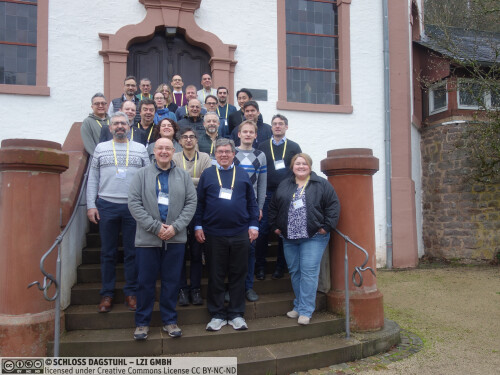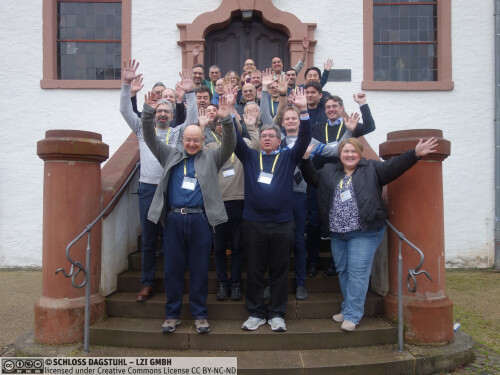Dagstuhl-Seminar 24512
Quantum Software Engineering
( 15. Dec – 20. Dec, 2024 )
Permalink
Organisatoren
- Shaukat Ali (Simula Research Laboratory - Oslo, NO)
- Johanna Barzen (Universität Stuttgart, DE)
- Andrea Delgado (Oak Ridge National Laboratory, US)
- Hausi A. Müller (University of Victoria, CA)
- Juan Manuel Murillo (University of Extremadura - Cáceres, ES)
Kontakt
- Marsha Kleinbauer (für wissenschaftliche Fragen)
- Susanne Bach-Bernhard (für administrative Fragen)
Gemeinsame Dokumente
- Dagstuhl Materials Page (Use personal credentials as created in DOOR to log in)
Programm
Under the umbrella of quantum information theory, quantum-relevant algorithms have been proposed. In some cases, their relevance is due to the reduction of the order of complexity with respect to solutions in the classical world. In other cases, the relevance is due to the emergence of innovative solutions, such as obtaining more accurate predictions with less trained neural networks. The entry into the NISQ era with the development of the first quantum computers and simulators now makes it possible to test such algorithms on real computers. This raises new expectations and fosters a growing interest in quantum computing from both research and development.
Lessons learned from classical software engineering highlight that industry will only adopt quantum computing if quantum software can be developed with appropriate engineering procedures. Therefore, quantum software engineering (QSE) is already a necessity. The question arises whether everything learned in the last decades is still applicable in this new era. The interest in this question is evidenced by the growing number of small forums that are organized every year, mostly in the form of workshops associated with conferences such as Q-SE at ICSE, QSW at IEEE Services, or Q-SET at IEEE Quantum Week, to name but a few.
Although the papers presented in these forums cover very interesting specific aspects addressed by different research teams, a deeper reflection on the nature and scope of Quantum Software Engineering is needed. This reflection should address questions such as the differences between Classical and Quantum Software Engineering, which features of quantum software can and cannot be addressed with known classical techniques, which classical techniques should be extended or modified, and which new software engineering techniques should be developed to address quantum software from an engineering perspective.
After a first day dedicated to the topic "When Software Engineering meets Quantum Mechanics", this seminar proposes the following topics to discuss about as a warm start:
- Quantum Software Design, Modelling, and Architecting
- Quantum Software Quality Assurance
- Adaptive Hybrid Quantum Systems
The main outcomes expected from the Dagstuhl Seminar on Quantum Software Engineering are twofold:
- On the one hand, creating a community of researchers with focus, not only in the specific problems that they are facing regarding building Hybrid Systems but also in the Quantum Software Engineering as a discipline and in which they are connected with different problems being addressed by different researchers.
- A roadmap of Quantum Software Engineering providing structure to the discipline and showing the different problems to be addressed in the field, how they connect with each other, the dependencies between them, the different research teams with interest in such problems and an agenda with milestones to be reached in the coming years regarding the development of the field.
 Shaukat Ali, Johanna Barzen, Andrea Delgado, Hausi A. Müller, and Juan Manuel Murillo
Shaukat Ali, Johanna Barzen, Andrea Delgado, Hausi A. Müller, and Juan Manuel Murillo
Please log in to DOOR to see more details.
- Shaukat Ali (Simula Research Laboratory - Oslo, NO) [dblp]
- Paolo Arcaini (National Institute of Informatics - Tokyo, JP) [dblp]
- Antonio Brogi (University of Pisa, IT) [dblp]
- José Campos (University of Porto, PT) [dblp]
- Schahram Dustdar (TU Wien, AT) [dblp]
- Michael Falkental (Kipu Quantum - Karlsruhe, DE)
- Sebastian Feld (Delft University of Technology, NL) [dblp]
- Michael Felderer (DLR - Köln, DE) [dblp]
- José Manuel García Alonso (University of Extremadura - Cáceres, ES) [dblp]
- Ignacio García Rodríguez de Guzmán (University of Castilla-La Mancha, ES) [dblp]
- Kostas Magoutis (University of Crete, Heraklion, GR & FORTH-ICS, Heraklion, GR) [dblp]
- Wolfgang Mauerer (Ostbayerische Technische Hochschule - Regensburg, DE)
- Andriy Miranskyy (Toronto Metropolitan University, CA)
- Anila Mjeda (Munster Technological University - Cork, IE) [dblp]
- Hausi A. Müller (University of Victoria, CA) [dblp]
- Juan Manuel Murillo (University of Extremadura - Cáceres, ES) [dblp]
- Yehuda Naveh (Classiq Technologies - Tel Aviv, IL)
- Ricardo Pérez-Castillo (University of Castilla-La Mancha, ES) [dblp]
- Antonio Ruiz Cortés (University of Sevilla, ES) [dblp]
- Shinobu Saito (NTT - Tokyo, JP)
- Ina Schaefer (KIT - Karlsruher Institut für Technologie, DE) [dblp]
- Laura Schulz (LRZ - München, DE)
- Ulrike Stege (University of Victoria, CA) [dblp]
- Robert Wille (TU München, DE) [dblp]
- Manuel Wimmer (Johannes Kepler Universität Linz, AT) [dblp]
- Lei Zhang (University of Maryland - Baltimore County, US) [dblp]
Klassifikation
- Emerging Technologies
- Information Theory
- Software Engineering
Schlagworte
- Quantum Software Design
- Modelling
- and Architecturing
- Adaptive Hybrid Quantum Systems
- Quantum Software Quality Assurance





 Creative Commons BY 4.0
Creative Commons BY 4.0
